
Cue sports are a wide variety of games of skill played with a cue, which is used to strike billiard balls and thereby cause them to move around a cloth-covered table bounded by elastic bumpers known as cushions.

Nine-ball is a discipline of the cue sport pool. The game's origins are traceable to the 1920s in the United States. It is played on a rectangular billiard table with pockets at each of the four corners and in the middle of each long side. Using a cue stick, players must strike the white cue ball to pocket nine colored billiard balls, hitting them in ascending numerical order. An individual game is won by the player pocketing the 9-ball. Matches are usually played as a race to a set number of racks, with the player who reaches the set number winning the match.

Mario Tennis is a 2000 sports video game developed by Camelot Software Planning and published by Nintendo for the Nintendo 64. Following Mario's Tennis, it is the second game in the Mario Tennis series. The game is known for being the introduction of Luigi's arch-rival, Waluigi, and the re-introduction of Princess Daisy and Birdo.

Pool is a classification of cue sports played on a table with six pockets along the rails, into which balls are shot. Each specific pool game has its own name; some of the better-known include eight-ball, blackball, nine-ball, ten-ball, seven-ball, straight pool, one-pocket, and bank pool. Eight-ball is the most frequently played discipline of pool, and is often thought of as synonymous with "pool".

Mario Artist is an interoperable suite of three games and one internet application for Nintendo 64: Paint Studio, Talent Studio, Polygon Studio, and Communication Kit. These flagship disks for the 64DD peripheral were developed to turn the game console into an Internet multimedia workstation. A bundle of the 64DD unit, software disks, hardware accessories, and the Randnet online service subscription package was released in Japan starting in December 1999.

Nintendo Research & Development No. 1 Department, commonly abbreviated as Nintendo R&D1, was Nintendo's oldest video game development team. It was known as Nintendo Research & Development Department before splitting in 1978. Its creation coincided with Nintendo's entry into the video game industry, and the original R&D1 was headed by Gunpei Yokoi. The developer has created several notable Nintendo series such as Metroid, Mario Bros. and Donkey Kong.

Mega Man Xtreme is a 2000 video game developed by Capcom for the Game Boy Color handheld console. It is a spin-off title in the Mega Man X series of video games that originated on the Super Nintendo Entertainment System. Mega Man Xtreme takes place within the series timeline during the 22nd century, in which a group of "Maverick" androids called the "Shadow Hunters" hack into the world's "Mother Computer" system, destabilize all of the networks, and allow other Mavericks to cause rampant destruction all over the world. The heroic "Maverick Hunter" X is tasked with going into cyberspace to relive his past missions and put a stop to the group's plans.

Side Pocket is a pocket billiards simulation released as an arcade video game by Data East in 1986. It was ported to the Nintendo Entertainment System and Game Boy, while an enhanced remake was later released on the Sega Genesis, Super Nintendo Entertainment System, and Game Gear. The game spawned two sequels, as well as arcade spin-off series titled Pocket Gal.

Virtual Pool 64 is a 3D first-person sports simulation video game that was developed by American studio Celeris and released for the Nintendo 64 by Crave Entertainment on December 17, 1998, in North America, and in Europe on February 26, 1999. The game features simulations of 11 forms of pool. It is part of the "Virtual Pool" game franchise, which also includes the PC games Virtual Pool, Virtual Pool 2, Virtual Pool Hall and Virtual Pool 3. The game has been simultaneously lauded as "a top-notch simulation" and criticized as dull, lacking both player incentive and engaging characters.

Bankshot Billiards 2 is a Sports simulation video game developed by PixelStorm, as a sequel to Bankshot Billiards. It was released on November 22, 2005, on Xbox Live Arcade. The pool simulator offers nine different game modes including nine-ball, eight-ball, Euro eight-ball (blackball), cutthroat, 14.1 continuous, three-ball, trick shots, "Time Trial", and golf. It offers a wide range of graphic customization including table style, felt color, wood grain, ball set, and cue stick.
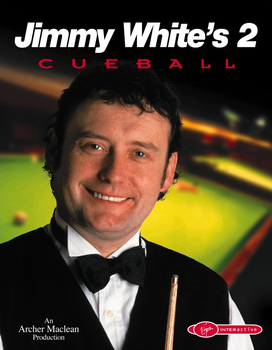
Jimmy White's 2: Cueball is a snooker and pool video game developed by Awesome Developments and published by Virgin Interactive as a sequel to Jimmy White's 'Whirlwind' Snooker. It was originally released in 1999 for Windows and Dreamcast. A PlayStation version was released in 2000 in Europe and North America, distributed and released by Bay Area Multimedia. Archer Maclean, the designer of the original game, led the development team. The game includes mini-games connected with a pub setting. A Game Boy Color version of the game was released in 2000. A sequel to Cueball, called Jimmy White's Cueball World, was released in Europe for the PC in 2001. The game received mixed reviews from critics, with the PC and Dreamcast versions faring better than the PlayStation port.
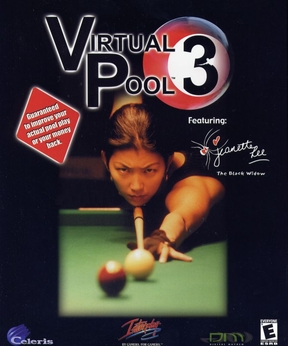
Virtual Pool 3 is a 3D, first-person sports simulation video game, developed and released for Windows and PlayStation by Celeris.
Virtual Pool is a 3D, first-person sports simulation video game series with computer simulations of cue sports which was developed by Celeris. The games in the series simulate pool, snooker and carom billiards. The Virtual Pool series focuses on accurate simulation and improving the player's ability to play the sport in real life. Virtual Pool releases are sold with a money back guarantee to improve a player's external game.

Antz Racing is a 2001 video game for the Game Boy Color, developed by RFX Interactive and published by Light and Shadow Production with Acclaim Entertainment co-publishing in North America and Electronic Arts co-publishing in Europe. The game is a kart racing game based on the 1998 film Antz.

Bomberman GB is a video game series created by Hudson Soft for the Game Boy. The first entry was Bomberman GB, released as Wario Blast: Featuring Bomberman! in North America and Europe, later succeeded by Bomberman GB 2, under the name Bomberman GB internationally, and Bomberman GB 3, which was only released in Japan.

Cue Club 2 is a sports simulation video game developed by Bulldog Interactive. First released for Microsoft Windows on 4 July 2014, it is a realistic interpretation of pool and snooker, and is the sequel to Cue Club. The game has received continual updates since launch, including an online multiplayer mode, the addition of a first-person camera with 3-dimensional (3D) tables and bars, a wide selection of larger table sizes, and an expanded range of achievements.
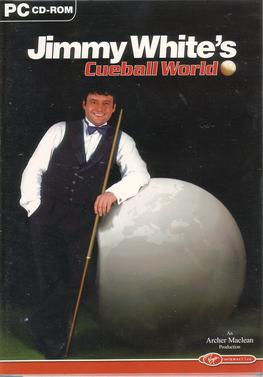
Jimmy White's Cueball World is a sports simulation video game published by Virgin Interactive as the sequel to Jimmy White's 2: Cueball, itself a sequel to Jimmy White's 'Whirlwind' Snooker. The development team once again being led by Archer Maclean, who designed the other two Jimmy White titles. The game was released in December 2001 in Europe, with a North American release was planned to be released a year later by Titus Software under a budget range using the Virgin Interactive brand name. PlayStation 2 and Xbox versions were planned, but were later cancelled.
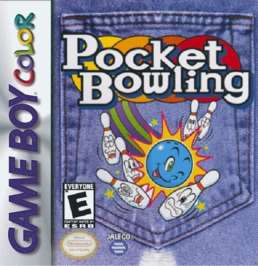
Pocket Bowling is a bowling video game developed and published by Jaleco for the Game Boy Color. The game was a launch title for the Japanese release of the Game Boy Color and the first bowling game for the platform.
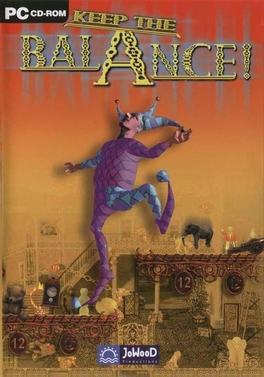
Keep The Balance is a video game published by JoWooD Productions and developed by Item Multimedia for Windows in 2000 and Karma Studios for the Game Boy Color in 2001. The game is a puzzle game requiring players to balance objects on a pair of scales.

Pocket Music is a 2002 video game developed by Jester Interactive and published by Rage Games for the Game Boy Color and Game Boy Advance. The game is a handheld adaptation of the Music series of games released by the developer, and allows players to create tracks of music from pre-recorded samples using a grid-based interface.




















